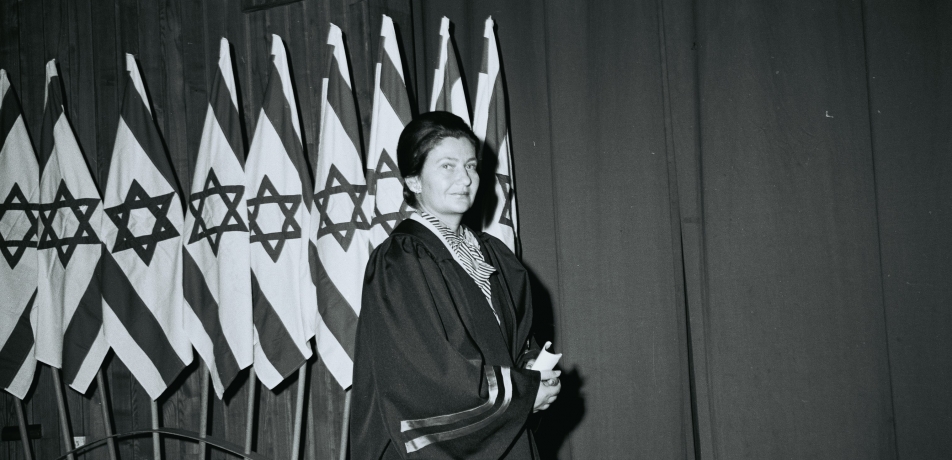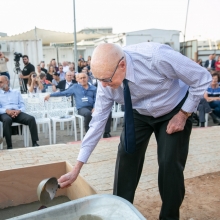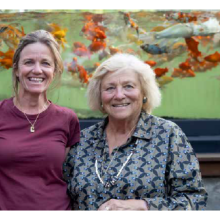In Memoriam: Simone Veil (1927-2017)
People behind the science

French politician Simone Veil, who founded an important scientific collaboration between Weizmann Institute of Science and the Pasteur Institute, passed away in June at the age of 89 at her home in Paris. She was a Holocaust survivor who became a leader in France as an an attorney and judge, a women’s rights advocate, and a civil libertarian.
When she served as France’s Minister of Health, she founded the Pasteur-Weizmann collaboration together with the Institute’s representative in France at the time, Robert Parienti. She received a PhD honoris causa from the Weizmann Institute in 1976.
The Pasteur-Weizmann partnership became a model for countless future collaborations undertaken by Weizmann scientists, notes Prof. Daniel Zajfman, President of the Weizmann Institute. The partnership—which funds scientific research in a large range of areas—“still stands strong after more than 40 years thanks to Simone’s vision leadership… We were especially privileged to have this very important association with her,” including the awarding of the PhD honoris causa.
Born in Nice as Simone Annie Liline Jacob, Simone Veil was imprisoned at Auschwitz and lost her mother there; her father and brother were killed in Lithuania. She managed to escape the Nazi death camp, and her two sisters also survived the war. She published a best-selling autobiography in 2007 entitled A Life. The following year, she was admitted to the prestigious Academie Francaise.
Ms. Veil also served as President of the European Parliament, and was a member of the Constitutional Council of France. In 2012, she received the Grand Cross of the Legion of Honour at the Elysee Palace, France’s highest award.
In an interview with Weizmann Magazine, her son, Pierre-François Veil, said that when Mr. Parienti approached his mother about the concept for the Pasteur-Weizmann collaboration, "she was immediately convinced of its worth and she saw the great potential, both for science and for the symbolic impact it would have for political relations between Israel and France...She was aware of Weizmann's great reputation, but when she came to the Institute, she was astonished to see first-hand the high quality of research and, throughout the years, as she watched the partnership flourish, she was incredibly happy and proud of its creation, especially since the partnership served as a blueprint for other major scientific collaborations. She institutionalized something that has had and will have an impact for generations."








